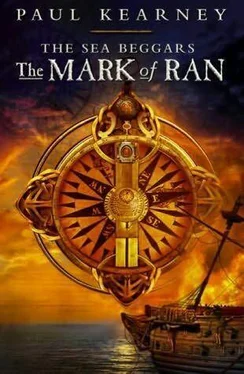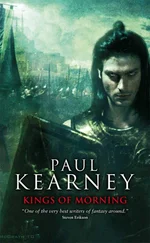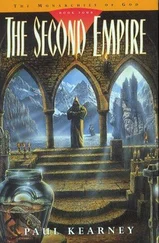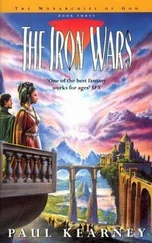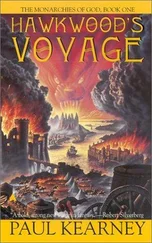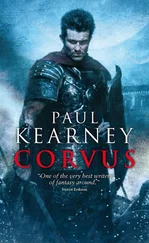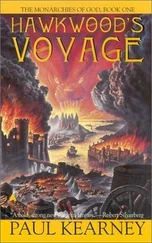Paul Kearney - The Mark of Ran
Здесь есть возможность читать онлайн «Paul Kearney - The Mark of Ran» весь текст электронной книги совершенно бесплатно (целиком полную версию без сокращений). В некоторых случаях можно слушать аудио, скачать через торрент в формате fb2 и присутствует краткое содержание. Жанр: Фэнтези, на английском языке. Описание произведения, (предисловие) а так же отзывы посетителей доступны на портале библиотеки ЛибКат.
- Название:The Mark of Ran
- Автор:
- Жанр:
- Год:неизвестен
- ISBN:нет данных
- Рейтинг книги:3 / 5. Голосов: 1
-
Избранное:Добавить в избранное
- Отзывы:
-
Ваша оценка:
- 60
- 1
- 2
- 3
- 4
- 5
The Mark of Ran: краткое содержание, описание и аннотация
Предлагаем к чтению аннотацию, описание, краткое содержание или предисловие (зависит от того, что написал сам автор книги «The Mark of Ran»). Если вы не нашли необходимую информацию о книге — напишите в комментариях, мы постараемся отыскать её.
The Mark of Ran — читать онлайн бесплатно полную книгу (весь текст) целиком
Ниже представлен текст книги, разбитый по страницам. Система сохранения места последней прочитанной страницы, позволяет с удобством читать онлайн бесплатно книгу «The Mark of Ran», без необходимости каждый раз заново искать на чём Вы остановились. Поставьте закладку, и сможете в любой момент перейти на страницу, на которой закончили чтение.
Интервал:
Закладка:
The cutter had had planks chopped out of her hull and her thwarts were smashed into splinters. Even if they had possessed a full complement of carpenter’s tools, it was unlikely they could ever have got her to float again. Most of the casks had been stove in also, but one was whole, and this Gallico roped to his back, straightening under it as lightly as if it were a rolled blanket. They also salvaged a few sheaves of dried fish which all the boat lockers of the Cormorant held against emergencies. Thinking of the Gannet, Rol smiled grimly, and made a pack for them out of a swatch of canvas, slinging them across his shoulder. The sailors had their knives and cutlasses, Rol the master’s pistol as well as Fleam, and there were two full waterskins and some tinderboxes in the party, but aside from that they possessed only the rags they stood up in. When they had mounded up the sand over their murdered comrades they stood about the graves like men amazed, and then their heads came up and all but Gallico stared at Rol for inspiration.
“We make for Ordos, I suppose,” he said. “It’s three hundred miles as the crow flies.” But it did not feel right as he said it. Going to Ordos would not bring him quicker to any revenge.
“There may be somewhere closer,” Gallico rumbled. “Northward up the coast from here there is a place where I know we will be welcome. But once we go there, there can be no going back. You should all know that.”
“What is this place?” Creed asked, eyes bright.
“Men call it Ganesh Ka, the Pirate City. I have been there in the past. It’s a hard road, by land, but shorter than the way to Ordos.”
“Pirate City! It’s a tale told to children, and drunken landsmen in seafront taverns,” Mochran said.
“No. It exists, believe me. But when a man enters the city, he cannot go back-from that moment on he must become a privateer or perish, for no one is allowed to leave unless they take to one of the Black Ships.”
“So we must all turn pirate?” Sayed Rusaf said. The oldest of the remaining Cormorants, he was an experienced topman, and might find employment anywhere on the Twelve Seas with ease.
“It is the law of that place,” Gallico said. He was watching Rol closely.
“I’ll go,” Mihal said. He was young enough to perhaps find the idea exciting.
“And I,” Mochran agreed. “For my brother’s death.”
“I will not,” Rusaf cried. “The Bionari made a mistake, it’s true, and our shipmates paid for it, but we are still alive-no need to throw our lives away as well.”
The last of the four original Cormorants was Bartolomew, the hot-tempered youngster from Corso. “How do we know this thing is telling us the truth?” he asked, eyes flashing under a ragged mop of black hair. “It could be he’s leading us into some kind of ambush where a few of his mates are laid in wait somewhere.”
For the first time Gallico’s temper rose. “You stupid little fool-what in the world do you have that is worth stealing? I am offering you a way to find a new life. Trek across the mountains to Ordos alone if you will-the eagles will be feasting on your eyes ere a week is out.”
“What does the skipper say?” Rusaf asked. “Rol, what of you?”
Rol looked over them all, his eyes lingering a moment on Creed’s transfigured face.
“I believe Gallico. Unlike all of you, I have met him before. If there is a hidden city, he will lead us to it. There is nothing for me now in Ordos or anywhere else; the Cormorant was the only home I knew, and now it is gone. I want revenge. I will throw in my lot with the Black Ships.”
“We have no choice, then,” Bartolomew said bitterly. “We must all turn pirate or else die here out in the waste.”
“It is more of a choice than our shipmates had,” Rol told him. He looked sidelong at Gallico. “Perhaps something can be worked out when we get to Ganesh Ka, some deal struck. Do not give up hope-we are alive, after all, when so many are not.”
They gave in after that, and grudgingly agreed to follow Gallico’s lead. There had been no need to ask Elias his opinion; it had been clear to see in his eyes. The little group labored back off the beach and up the cliff to the plateau above once more. They were tired now, having walked through the night, but Gallico insisted they make some distance between themselves and the charred, sunken hulk of the Cormorant. “We’ll rest at noon,” he said, “in the hottest part of the day, and then continue after dark. First we must go back to the spring I dug up, and fill this cask. One cannot dig out water every time one needs it.”
So they trudged inland. Rol and Gallico took the lead, then Creed, and behind him Mihal and Mochran. Bringing up the rear were Rusaf and Bartolomew. They retraced their steps under the burning heat of the morning sun, their eyes screwed up against the glare of the light on the pale, naked earth. Rusaf, who had been born in Tukelar, plucked a dry leaf from a tree and held it between his teeth to prevent his lower lip from blistering. The others peeled off their ragged shirts and draped them over heads and shoulders against the blast of the sunlight.
The spring had turned to cracked mud, but Gallico dug it out once more and held the bunghole of the cask under the bubbling water. It was awkward going until they hit upon the solution of emptying their waterskins into the cask and refilling them. By the time the cask was full and their skins also, and they had all drunk as much as they could hold in their swollen bellies, the sun was halfway up the sky. Gallico shaded his eyes and peered north along the coast. The great plateau jutted out into the sea there for ten or fifteen leagues and then broke off suddenly in sheer sea cliffs. On the other side, clear to see even through the gathering shimmer of the heat haze, the Inner Reach bit into the land again in a wide blue firth.
“We are north of Golgos, which is good, because there is a Bionese garrison there,” Gallico said. “I’d wager those two cruisers are going to put in there also to refit; our stern chasers mauled them somewhat before they ran us on the rocks. This plain ahead is named the Gorthor Flats; fourteen leagues across, and there will be no water there, but it must be faced. Beyond it is the Firth of Ringill. We must follow its shores northwest, toward the mountains. Across the firth is Ganesh, the ancient land which legend holds was once a fief of the Goliad, but which is now a wilderness. We have a journey of some two weeks before us at least, for Ganesh Ka is much farther to the north.”
Rol looked at the desolation of the blasted land about them, a shimmering ochre waste where the only movement was that of wind-reared dust-clouds. “How in the world do armies fight in a place like this?”
“By losing as many men to the heat as to the enemy,” Gallico said. “The Goliad is the only real place to land an armament between Ordos and Urbonetto; everywhere else is too mountainous for a baggage or siege train. Plus, if one heads inland there are passes through the Myconians that lead to Myconn itself. Battles have been fought for possession of those passes for time out of mind, with armies of Oronthir and Cavaillon and Armidon and the Mamertine League all seeking to come at Bionar through its underbelly. All have failed. Even a century ago, the Goliad was not the place you see now; it was a rolling savannah, with herds of deer and bison and wild asses. But the grazing of countless army horses and the feet of passing soldiers have stripped the grass from the earth and the wind does the rest. In this part of the world rain comes fast and hard in the autumn of the year, and the rest of the seasons are dry. With no vegetation to protect it, the rain washed the good soil away, and now the wet season brings no life to the place because the life is not there to germinate.”
Читать дальшеИнтервал:
Закладка:
Похожие книги на «The Mark of Ran»
Представляем Вашему вниманию похожие книги на «The Mark of Ran» списком для выбора. Мы отобрали схожую по названию и смыслу литературу в надежде предоставить читателям больше вариантов отыскать новые, интересные, ещё непрочитанные произведения.
Обсуждение, отзывы о книге «The Mark of Ran» и просто собственные мнения читателей. Оставьте ваши комментарии, напишите, что Вы думаете о произведении, его смысле или главных героях. Укажите что конкретно понравилось, а что нет, и почему Вы так считаете.
